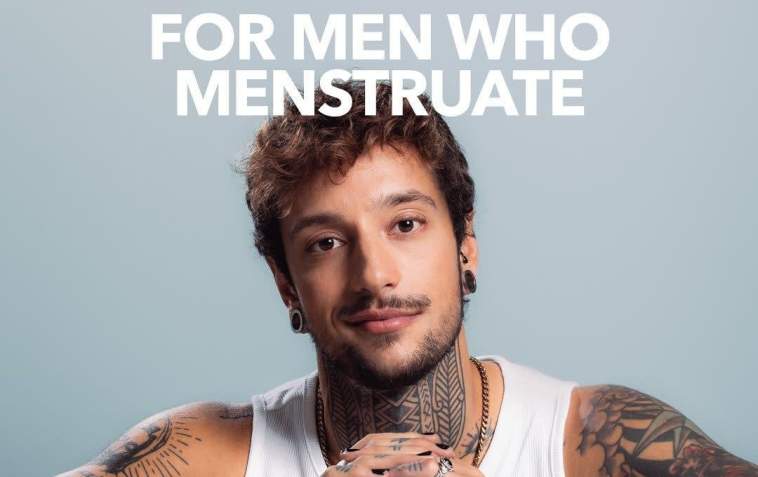(Yahoo) The world’s first tampons for men have been criticised by feminist campaigners as an “insult” to women who suffer period discrimination.
Vuokkoset, a Finnish company released the controversial new sanitary product earlier this month to coincide with Transgender Awareness week and International Men’s day.
The product comes in a dark blue box which bears the words “For Men” on one side, but then extends this phrase around the packaging so it eventually reads “For Menstruation”.
Vuokkoset has said in a statement online that it launched the period product to “raise the issue of genderness of hygiene products and the anxiety related to menstruation in trans men”.
Trans men menstruate while undergoing hormone therapy
The company says that trans men – females who identify as male – might continue to experience menstrual cycles even while undergoing hormone treatment to change gender or may choose not to have such therapy at all and so will still have periods.
They added that studies show that 93 per cent of trans men have experienced menstrual-related gender dysphoria – a sense of unease a person may have because of a mismatch between their biological sex and gender identity.
The face of the “For Men” tampons advertising campaign, Dakota Robin, a Finnish trans man and human rights activist, said: “By changing attitudes and broadening perspectives, we can also stamp out discrimination against gender minorities.
“The least anyone can do is to understand that periods do not define womanhood and understand the diversity behind them.”
‘Period shame part of sex-based inequality’
However, feminist groups and women’s health experts on Saturday lambasted Vuokkoset for separating the idea of being female from menstruation.
Anna Melamed, a midwifery lecturer, said: “For so many girls around the world period shame and a lack of period products is very much part of the sex-based inequality they experience.
“To make out that ‘periods are not a gender issue’ is a backward step for those of us trying to educate young people and quite frankly is an insult to the sexism girls and young women suffer every day because of their periods.”
Milli Hill, feminist writer and author of a bestselling book on female puberty titled My Period, said: “I would have no complaint if it was clear on the packaging that this product is for people who identify as trans men, but they are saying this product is specifically “for men”.
“I just think these companies need to stop changing the definition of words such as men and women to support a lie that people can change sex when biological sex is immutable.
Backlash against ‘trans-inclusive’ period products
“It’s also interesting that the packaging on women’s period products is being desexed and neutralised and yet here we have a period product shouting about the fact that it’s ‘for men’.”
This latest row is part of a growing backlash from women’s groups against a trend among companies and institutions to “erase” the link between women and period products to make them more “trans-inclusive”.
A spokeswoman for women’s rights group Woman’s Place UK said: “Menstruation is not a sign of femininity – but a biological fact of the female lifecycle.
“Only women menstruate – this fact will not be changed by there being a small market of those who prefer products with ‘for men’ on the box.”
Earlier this year Therese Coffey, the former Environment Secretary, ordered an investigation into tampons and sanitary pads being supplied in men’s toilets at the Department for the Environment, Food and Rural Affairs.
And in 2019 women threatened the boycott the leading period products brand Always when it removed the image of Venus – representing the female sex – from its packaging.
‘Majority of people who menstruate are women’
Senja Blomqvist, a brand manager for Vuokkoset, responded to the criticisms of the tampons “for men”, saying: “We fully acknowledge that the vast majority of individuals who menstruate are women and this is a significant part of the female experience. However, it is also a reality for some men and non-binary individuals.






